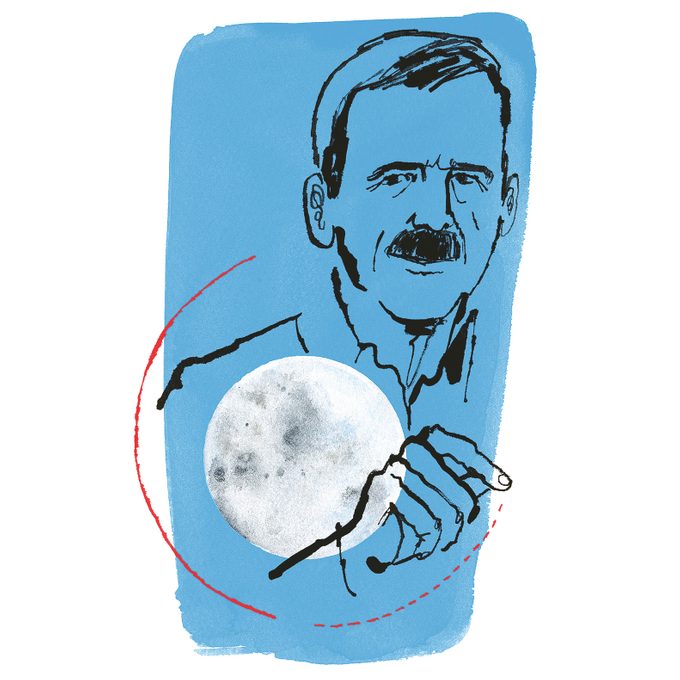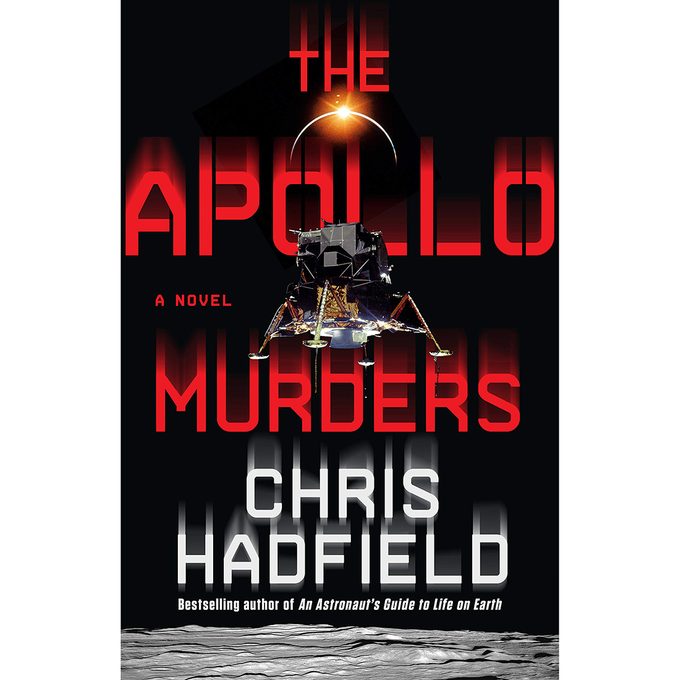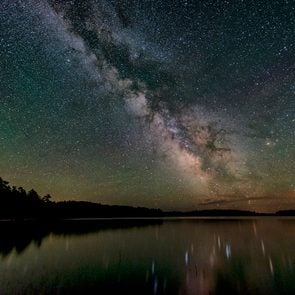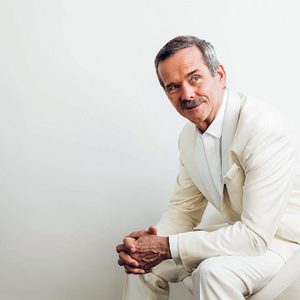A First Look at Chris Hadfield’s New Novel, The Apollo Murders
The beloved Canadian astronaut is exploring a new frontier: fiction writing.
Our editors and experts handpick every product we feature. We may earn a commission from your purchases.

Reader’s Digest Canada: Your new novel, The Apollo Murders, takes place on a mission to the moon. I guess you subscribe to the adage “write what you know”?
Chris Hadfield: It’s more about being compelled to share these miraculous and rare experiences. I was the first Canadian to walk in space, the only Canadian to command a spaceship, and I served as commander of the International Space Station. I could just keep it all to myself, but that feels like a waste. Since retiring from the Canadian Space Agency in 2013, I have come up with new ways to share my expertise and passion for space exploration. The novel is another platform and also a challenge that I was eager to attempt.
You set your book in the Cold War era. Why?
That was a very exciting and fruitful period in terms of the history of space exploration. When I was born, going to space was impossible. In 1961, the first person flew in space. The space shuttle Columbia flew in 1981, and nearly 20 years after that we started living on the ISS. Now another 20 years have passed and we’re on the brink of not just getting to the moon, like they do in The Apollo Murders, but of actually settling there.

What does that look like, exactly? Are we talking about suburban life, but on the moon?
For so long, both cost and risk made getting to the moon something that was only attempted by a very small group. But we now have more affordable and reliable ways of getting to the moon. We also know that the moon has water frozen into craters and a power source in the sun. We have to figure out how to extract that and start to grow crops as part of building a safe, permanent habitat. A lot of the work can be done by probes and robots. The joke is that, if we do this right, the robots we send ahead of us will hand us a martini when we get there.
What about the criticism that we should instead focus our investment on solving problems here on Earth?
It’s about balancing investment. Certainly there is a lot to be done to solve issues happening on our own planet, but exploring the universe is part of that. We have to look at the history of extinction events and how another habitable planet could mean the survival of humankind. Carl Sagan has said that the reason the dinosaurs died is because they didn’t have a space program.
There has been a lot of debate recently about whether we should be settling the moon or Mars. What’s your take?
When we’re talking about travelling to the moon versus travelling to Mars, it’s the difference between building a vehicle to get to your cottage and building one to get to Australia. Mars is not only far beyond the Moon, it’s often on the other side of the sun, and there is a lot of risk associated with making that trip. There is also a lot to be excited about. We know that the moon is a lifeless planet. There is no evidence of life on Mars—yet.
Life as in Martians?
At this point, the speculation is around microbial fossils, but we will know more when specimens from the Perseverance rover return to Earth, potentially by 2031. On Earth, we have a fossil record of almost four billion years of life, starting with single-celled organisms. And, we know that Mars and Earth were very similar at the time that life developed on Earth. So when you look out into the universe and the infinite number of chances for life to develop, it seems pretty arrogant to think that we’re it.
Next, find out how Canada made the moon landing possible.






